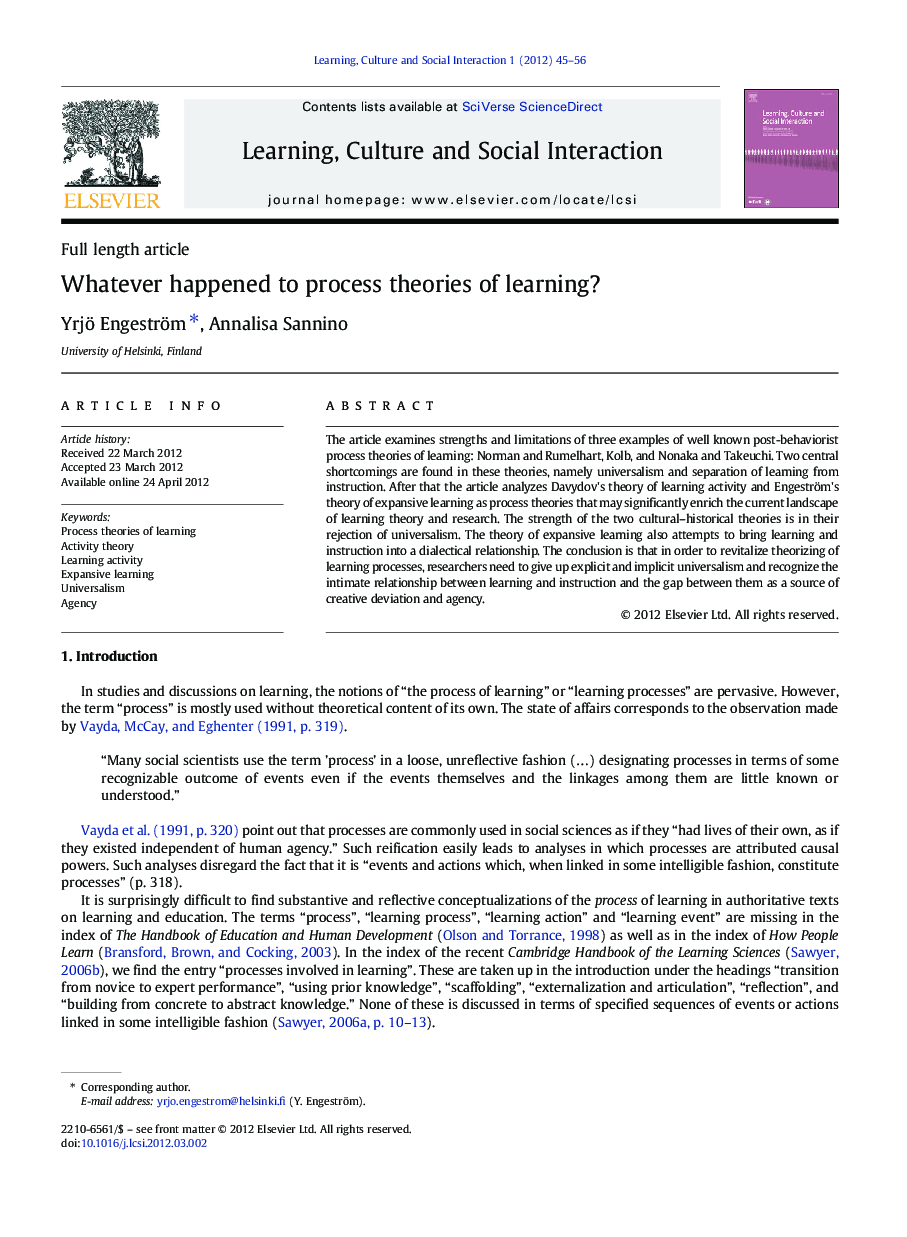| Article ID | Journal | Published Year | Pages | File Type |
|---|---|---|---|---|
| 364455 | Learning, Culture and Social Interaction | 2012 | 12 Pages |
The article examines strengths and limitations of three examples of well known post-behaviorist process theories of learning: Norman and Rumelhart, Kolb, and Nonaka and Takeuchi. Two central shortcomings are found in these theories, namely universalism and separation of learning from instruction. After that the article analyzes Davydov's theory of learning activity and Engeström's theory of expansive learning as process theories that may significantly enrich the current landscape of learning theory and research. The strength of the two cultural–historical theories is in their rejection of universalism. The theory of expansive learning also attempts to bring learning and instruction into a dialectical relationship. The conclusion is that in order to revitalize theorizing of learning processes, researchers need to give up explicit and implicit universalism and recognize the intimate relationship between learning and instruction and the gap between them as a source of creative deviation and agency.
